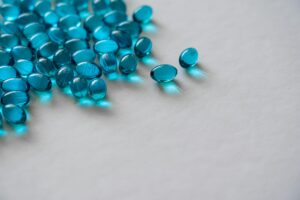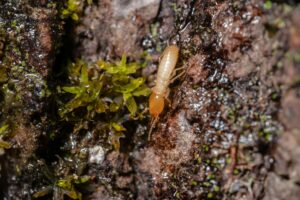
Using Neem Oil for Termites
Exploring natural solutions for termite control can lead you to neem oil, a versatile and eco-friendly option. Here’s how you can utilize neem oil as an effective method to manage termite infestations in your home.
Neem Oil: A Natural Termite Solution
Neem oil, extracted from the neem tree (Azadirachta indica Juss.), contains a multitude of biologically active compounds, with azadirachtin being the most significant. This component is primarily responsible for neem oil’s pest-repelling and killing properties. In addition to azadirachtin, neem oil boasts other components like meliantriol, nimbin, nimbidin, nimbolides, fatty acids, and salannin, all contributing to its effectiveness (NCBI).
As a homeowner or resident looking for termite treatment, you can consider neem oil a promising ally. It has been used for centuries, not only to control pests but also to manage diseases. The beauty of neem oil lies in its non-toxic nature, making it safe for use in and around your home without the harsh effects associated with chemical treatments.
When dealing with types of termites that have invaded your dwelling, neem oil can serve as a potent tool in your DIY termite control arsenal. Its application is not complex and can be integrated into a regular home maintenance routine to prevent termite infestations.
Effectiveness of Neem Oil
Neem oil addresses termite problems by hindering their ability to grow and reproduce. It acts as an antifeedant and disrupts the action of the insect molting hormone ecdysone, a crucial element in their growth process. The slow-acting nature of neem oil means that termites must come into direct contact with it to be affected (Anchor Pest Control).
The effectiveness of neem oil as a biopesticide is well-documented. It repels a variety of insect pests, including termites, by acting as both a repellent and a larvicide. Azadirachtin, specifically, is responsible for up to 90% of the effect on pests, making neem oil a formidable option for natural termite prevention and control (Wikipedia).
Despite its broad use in horticulture and organic farming, the use of neem oil for termites in residential settings is gaining traction. Homeowners who favor environmentally conscious methods heavily rely on neem oil for its low toxicity and efficacy against termites in home foundations, wooden furniture, and other termite-prone areas.
Keep in mind that neem oil’s slow-acting property means that it may not deliver immediate results, but it is an effective long-term strategy to maintain a termite-free home. For those facing heavy infestations or seeking quick relief, exploring options like chemical termite treatments or consulting a reliable termite control company may be necessary. However, for ongoing prevention and mild infestations, neem oil for termites is a robust, sustainable choice.
Application and Safety Tips
When venturing into termite control, especially when using natural methods like neem oil, it’s essential to understand not only the application process but also the necessary safety precautions to ensure the health of both the user and the environment.
Applying Neem Oil for Termites
Neem oil, a natural termite solution, can be a safe and effective way to prevent termite infestations. To apply neem oil for termites, you can follow these steps:
- Dilute Neem Oil: Create a neem oil solution by diluting the oil with water according to the instructions on the product label. A common ratio is a few tablespoons of neem oil per gallon of water.
- Prepare the Area: Before application, remove any loose wooden debris from around your house which could serve as a food source for termites.
- Apply the Solution: Use a spray bottle or garden sprayer to apply the neem oil solution to areas where termites are present or could potentially enter, such as wood structures, foundations, and soil around your home.
- Repeat the Treatment: Reapply the neem oil solution every couple of weeks or after heavy rain to maintain its effectiveness as a repellent.
For a comprehensive guide on termite behaviors and how to tackle different species, you can refer to types of termites and see tailored advice for drywood termites, dampwood termites, and formosan termites.
Safety Precautions and Considerations
While neem oil is a safer alternative to chemical termite treatments, certain precautions should still be taken to ensure the safety of people, pets, and beneficial wildlife:
- Personal Protection: Always wear gloves when handling neem oil, as it can be irritating to the skin. Eye protection is also advisable to avoid irritation.
- Environmental Impact: Be mindful of the surrounding environment when applying neem oil. It is slightly toxic to fish and aquatic organisms, so avoid contaminating waterways.
- Beneficial Insects: Neem oil is considered safe for beneficial insects, including bees, when used correctly. Insects must consume the treated plant to be affected, so the risk to pollinators is minimal. However, it’s still important to apply neem oil during times when these insects are less active, such as early morning or late evening.
- Pets and Domestic Animals: Keep pets and domestic animals away from treated areas until the neem oil solution has dried. Although not generally harmful, neem oil can cause adverse reactions in some animals if they come into direct contact with high concentrations (National Pesticide Information Center).
Remember, a successful termite prevention strategy often includes multiple methods. Along with using neem oil, consider incorporating termite-resistant materials, regular inspections, and landscaping practices that deter termites. For those interested in other organic options, explore organic termite treatment options or consider beneficial nematodes for an environmentally friendly approach to termite control.




